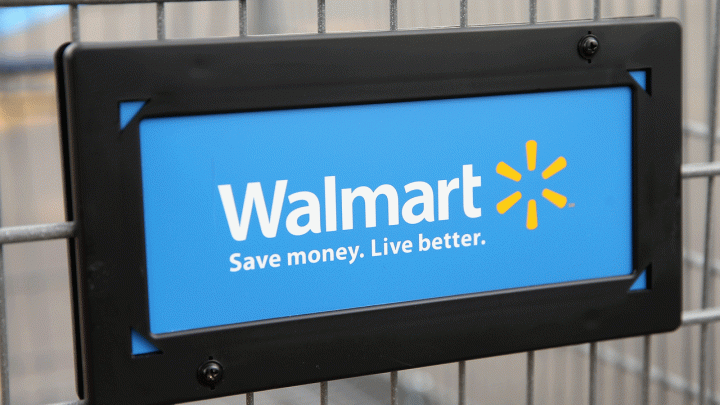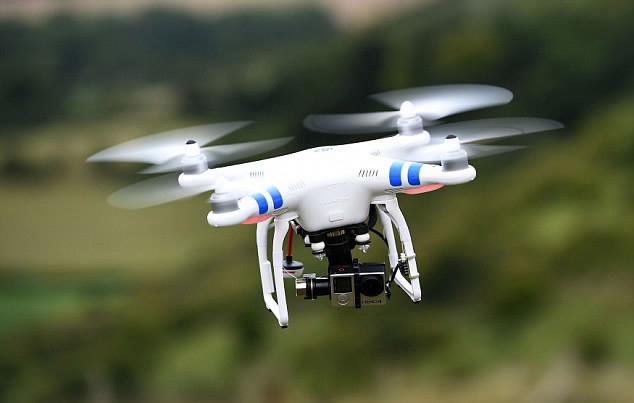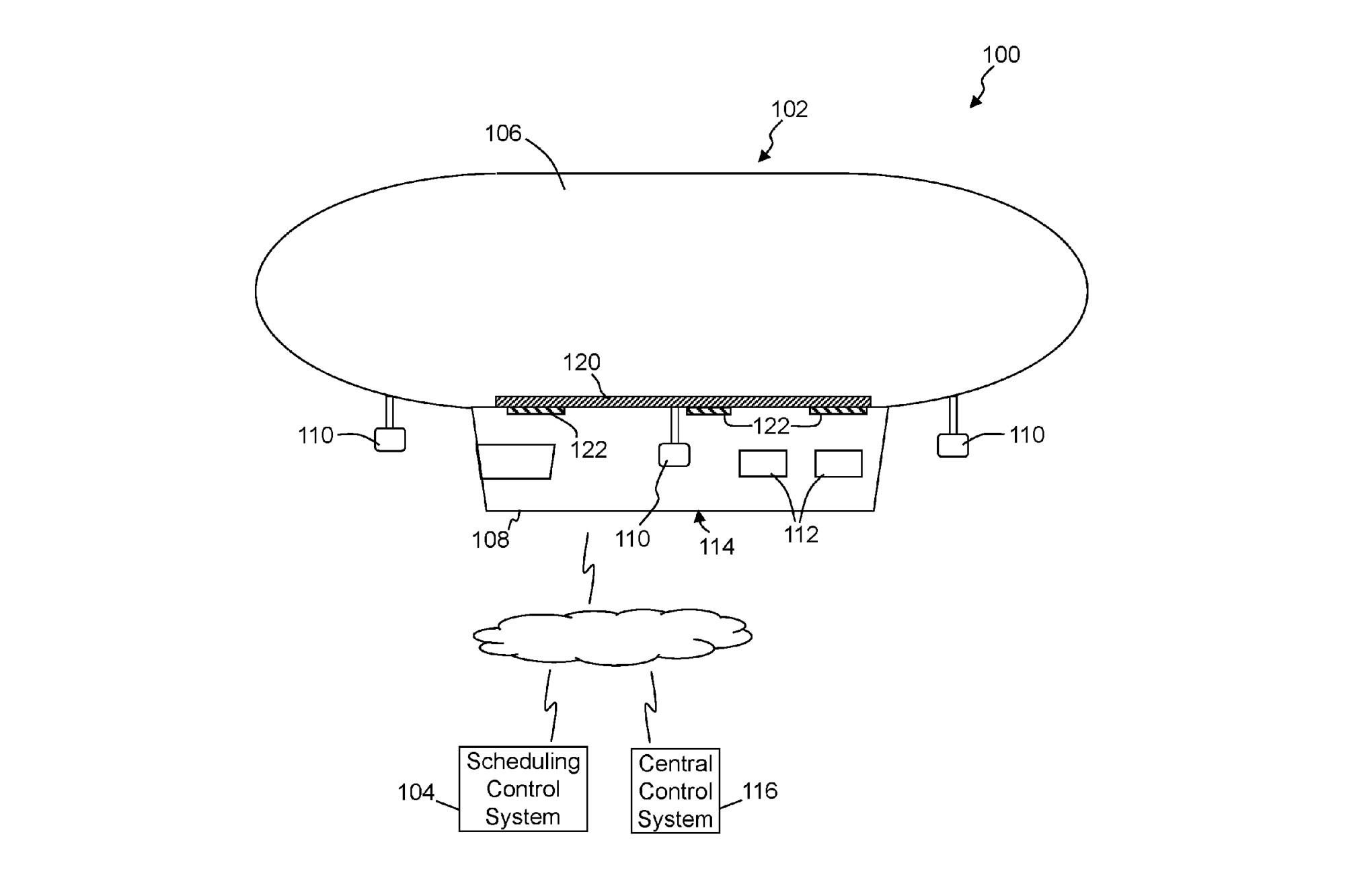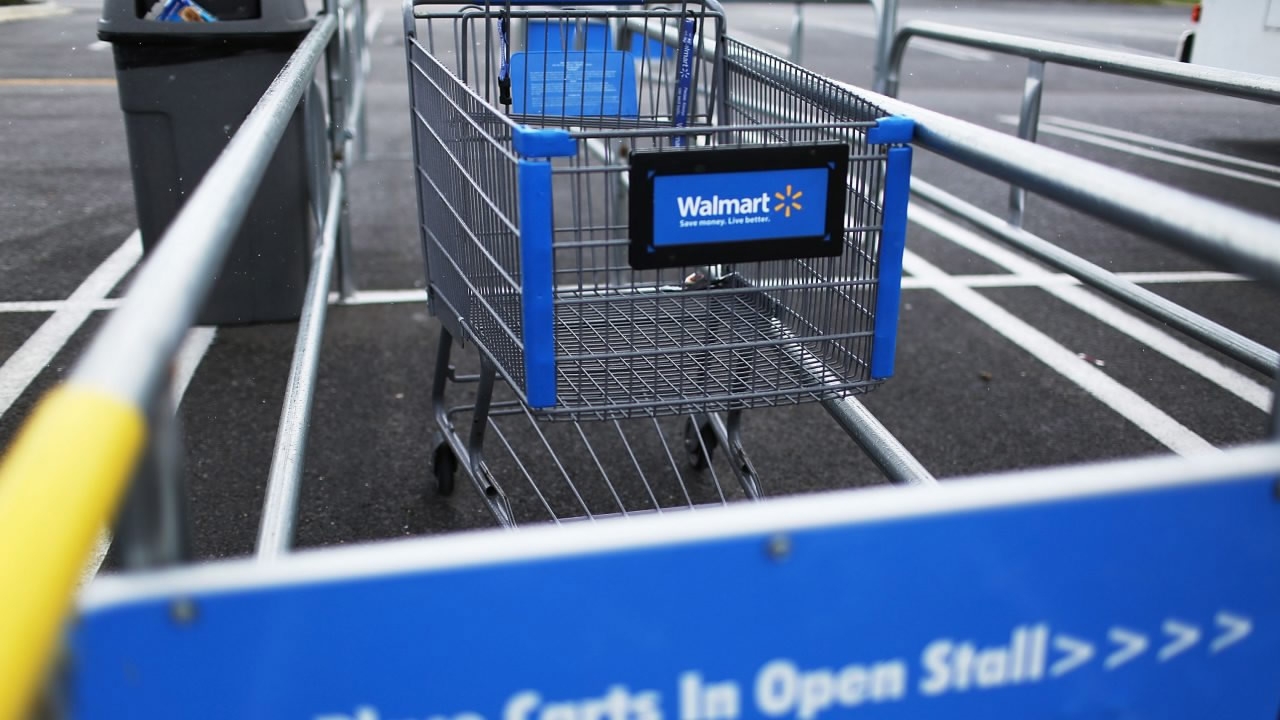
Tech & Sci
15:11, 21-Aug-2017
Walmart files patent for floating warehouse that uses drone to deliveries goods
By Xie Zhenqi

Walmart has applied for a patent for its new marketing tactic -- a blimp-style floating warehouse – which delivers goods to customers' homes using drones.
This latest move made by the US retail giant was seen as a direct move to compete with Amazon, who was granted a patent for a similar innovation in April 2016.
Many believe that Walmart is trying to take its e-commerce business to the next level by offering cheaper and faster logistic services. It first submitted the patent application in February, reported Bloomberg.

Walmart wants to set up floating warehouses with drones, which could deliver packages faster and at a lower cost. /VCG Photo
Walmart wants to set up floating warehouses with drones, which could deliver packages faster and at a lower cost. /VCG Photo
The machine, which can be operated either autonomously or by a human pilot remotely, can reach heights ranging from 500 to 1000 feet (roughly 305 meters).
Competition between the world's largest retailers has heated up in recent years. Amazon is planning to launch physical stores, following its acquisition of grocery chain Whole Foods Market for 13.7 billion US dollars; while Walmart tries to grab shoppers' loyalty and money by growing on its business online.
In October, Walmart also applied for a patent in a web-based system that collects user data. Like Amazon's Dash buttons, it also allows reordering commodity goods like paper towels in just one click.

Illustration of the blimp-like floating warehouse drawn on Walmart's patent application. /Walmart Photo
Illustration of the blimp-like floating warehouse drawn on Walmart's patent application. /Walmart Photo
On the floating warehouse patent application, it describes the contraption as "Gas-filled carrier aircraft and methods of dispersing unmanned aircraft systems in delivering products."
It also says that "In a modern retail environment, there is a need to improve the customer service and/or convenience for the customer," which, specifically, concerns mainly with product availability.
"The availability of products is dependent in part on the distribution of products, which can take numerous forms," explains the patent, and implies that only the company that delivers products to a delivery location without causing "undesirable delays, adding costs and reducing revenues" has a chance to win the race.

Reuters File Photo
Reuters File Photo
The traditional method of fulfilling online orders is costly for retailers, as the last step before the goods arrive at a buyers house is usually handled by a local logistics agency. However, customers have the option to pick up the items at stores, where they often make some additional purchases.
Besides of the benefit of lowering costs, the new system could also distribute to a larger area. A flock of drones released by an airship deliver parcels in one town and return to restock before heading to the next town, which would be more efficient than having a central distribution hub.
Now the real rivalry lies in which of the two can make the technology work before the other does.
10986km

SITEMAP
Copyright © 2018 CGTN. Beijing ICP prepared NO.16065310-3
Copyright © 2018 CGTN. Beijing ICP prepared NO.16065310-3